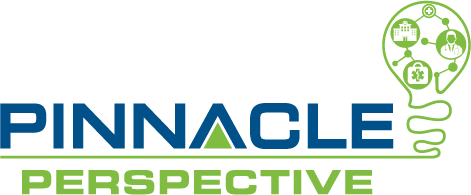
The Centers for Medicare & Medicaid Services (CMS) has put forth a proposed rule that outlines significant changes to the Medicare Shared Savings Program (Shared Savings Program) for the calendar year (CY) 2024. The aim of these proposed changes is to further advance CMS’ value-based care strategy, promote growth, alignment, and equity in the program, and address concerns raised by stakeholders, particularly accountable care organizations (ACOs). A large part of the strategy refresh for value-based care comes from the bold goal to have all Medicare fee-for-service beneficiaries in a care relationship with accountability for quality and total cost by 2030.
ACOs should review the fee schedule update proposals closely to assess the implications for their specific circumstances. This summary does not include all changes being proposed.
Part 1: Advance Investment Payments [1],[2],[3]
The Centers for Medicare & Medicaid Services (CMS) has introduced a transformative approach; a new payment avenue in the form of “advance investment payments” (AIPs) for eligible participants in the Medicare Shared Savings Program (Shared Savings Program). Initially established in the CY 2023 PFS final rule, AIPs are designed to aid accountable care organizations (ACOs) during their transition to performance-based risk. AIP offers new ACOs upfront shared savings payments, aiming to alleviate initial financial burdens and enhance care quality for underserved beneficiaries. This innovative initiative seeks to stimulate ACO formation in underserved regions and foster equitable healthcare access.
To be eligible for AIP, ACOs must be new applicants to the Shared Savings Program and meet specific criteria, such as:
- Participate in the Medicare Shared Savings Program (MSSP) as an ACO (Basic Level A); ACOs joining at Levels B through E of the BASIC Track will not be eligible to receive all 8 quarterly payments, if any;
- Inexperience with performance-based risk initiatives;
- Low revenue status.
The payments must be used to boost care quality and efficiency, addressing both clinical and social determinants of health. CMS’s focus on AIP underscores their commitment to advancing health equity by encouraging ACO participation, particularly in regions facing healthcare disparities. Through AIP, CMS envisions a more inclusive and diverse landscape in the Shared Savings Program, driving positive healthcare outcomes for underserved populations.
Proposed refinements to this payment approach are currently under consideration for ACOs entering agreement periods commencing on January 1, 2024. The refinements include allowing ACOs to move to two-sided model levels within the BASIC track’s glide path in their third performance year after receiving advance investment payments. Additionally, the recoupment of these payments would occur from the shared savings of ACOs choosing early renewal, rather than a direct recoupment process. Reporting requirements for spend plan updates and actual spending information would be expanded, termination policies adjusted, and the option for reconsideration review of payment calculations introduced.
Part 2: Redefined Beneficiary Assignment and Enhancements to Financial Benchmarking: Regional Risk Score Cap & Risk Adjustment [4],[5]
CMS is taking steps to restructure the beneficiary assignment process within the Shared Savings Program. Effective from January 1, 2025, CMS proposes adding a third step to the beneficiary assignment methodology to increase accuracy and inclusivity. This proposal will also expand the assignment window from 12 months to 24 months and will specifically account for the role of nurse practitioners, physician assistants, and clinical nurse specialists providing primary care services.. The change is expected to increase access to care for underserved populations, as more beneficiaries will be assigned to ACOs. CMS anticipates that this change could have historically resulted in nearly a 2.9% rise in the national assignable population.
A proposed adjustment to the calculation of the regional component of the three-way blended benchmark update factor is under consideration for agreement periods beginning on January 1, 2024, and subsequent years. This proposal seeks to cap the growth of prospective Hierarchical Condition Category (HCC) risk scores within an ACO’s regional service area. The method draws inspiration from the methodology adopted in the CY 2023 PFS final rule and includes an assessment of the ACO’s aggregate market share. This cap on regional risk score growth would stand independently of the cap on an ACO’s own prospective HCC risk score growth, ensuring uniform application across regions. The objective is to enhance accuracy in regional update factors for ACOs functioning within regions experiencing significant risk score growth. This measure aims to create incentives for ACOs to operate within regions with higher risk score growth, thereby encouraging the provision of quality care for high-risk beneficiaries and attracting new ACO participants.
To bolster risk adjustment within the Shared Savings Program and ensure consistent application of the revised CMS-HCC risk adjustment model (2024 CMS-HCC V28) in the program context, a proposal has been introduced suggesting using the same CMS-HCC risk adjustment model utilized in the performance year for all benchmark years. The proposed phased transition mirrors the process undertaken in Medicare Advantage, wherein the revised 2024 CMS-HCC model will be phased in over three years, comprising 67% of the 2020 CMS-HCC model and 33% of the CMS-HCC model for performance year 2024. Existing ACOs would continue using the current methodology for calculating benchmark year and performance year prospective HCC risk scores, mitigating adverse impacts during the transition period. This approach strives to ensure consistent risk adjustment and equitable benchmarking across the Shared Savings Program.
For agreement periods starting on or after January 1, 2024, when calculating the update factor between a benchmark year three (BY3) and the performance year (PY), this proposed cap will consider two factors:
- An increase of up to +3% beyond the change in demographic risk score.
- An adjustment accounting for the ACO’s market share, which will influence the cap’s extent.
This change is likely to impact ACOs in regions where there has been significant risk score growth since BY3. While this modification will not affect most ACOs, its impact will be more pronounced as the gap between benchmark years and performance years increases. CMS’s simulations indicate that around 11% of ACOs could have been subject to this cap for PY 2021.
Lastly, the finalized policies of the CY 2023 PFS rule aimed to reduce negative regional adjustments’ impact for Shared Savings Program participants starting on January 1, 2024. CMS wants to encourage ACOs serving high-cost beneficiaries to join or stay in the program. The proposal seeks to further alleviate this impact, potentially enhancing the attractiveness of program participation. The proposed changes would eliminate downward adjustments for ACOs facing negative benchmark adjustments according to the CY 2023 PFS rule methodology. Furthermore, ACOs with negative regional adjustment and eligible for prior savings adjustment could also benefit as the negative regional adjustment would no longer offset the prior savings adjustment. ACOs with positive regional adjustments would remain unaffected by the proposed changes.
In essence, these financial benchmark adjustments and beneficiary assignment methodology enhancements reflect CMS’s commitment to refining the Shared Savings Program to ensure greater accuracy, fairness, and inclusivity in its operations, thereby benefiting participating ACOs and the beneficiaries they serve.
Part 3: Embracing Digital Quality Measurement Submission – Reporting Medicare CQMs and the Alignment with MIPS [6],[7]
CMS is actively pursuing a shift towards electronic clinical quality measures (eCQMs) that involve all-patient, all-payer reporting. The ACO community have spent recent years voicing concerns about the associated time and financial burdens, particularly the effort required to aggregate data from diverse practices with varying electronic health records. This transition implies that ACOs must report on all patients, extending beyond Medicare beneficiaries or those exclusively linked to the ACO’s primary care clinicians. However, this move can inadvertently prompt specialists to provide services typically within the purview of primary care, potentially leading to extra tests that Medicare might not cover. Moreover, ACOs serving traditionally underserved patients might experience unfairly lower scores due to the inability to account for variations in Medicaid or uninsured patient populations.
One of the key proposed changes is the new form of digital quality measurement within the Shared Savings Program for ACOs under the Alternative Payment Model (APM) Performance Pathway (APP) – Medicare Clinical Quality Measures (CQMs). During the performance year 2024, ACOs will be presented with the choice to report quality data through three distinct avenues: CMS Web Interface measures, electronic clinical quality measures (eCQMs), and/or Merit-Based Incentive Payment System (MIPS) clinical quality measures (CQMs) collection types. Moving forward into performance year 2025 and the subsequent years as determined by CMS, ACOs will retain the flexibility to report quality data using eCQMs, MIPS CQMs, and/or Medicare CQMs collection types. This multi-method approach provides ACOs with adaptable options to effectively communicate their quality performance, aligning with the program’s commitment to enhancing patient care and outcomes.
The proposed adoption of Medicare CQMs within the Shared Savings Program serves as a transition collection type for ACOs. This transition aims to equip ACOs with the necessary infrastructure, skills, knowledge, and expertise to report all payer/all patient Merit-Based Incentive Payment System (MIPS) CQMs and electronic Clinical Quality Measures (eCQMs) more effectively. By focusing on Medicare patients with claims encounters with ACO professionals holding specialty designations used in the Shared Savings Program assignment methodology, ACOs can gradually adapt to digital reporting for their Medicare patients without being penalized for serving other patient populations.
The proposal aims to reduce barriers to digital measurement and promote the adoption of advanced technology within the Shared Savings Program. This will enable ACOs to embrace digital reporting for their Medicare patients, without facing potential penalties for serving other patients, encouraging them to adopt modern healthcare technologies.
Data Completeness Standard for Medicare CQMs
| Performance Year | Completeness Percentage |
| 2024 | 75% |
| 2025 | 75% |
| 2026 | 75% |
| 2027 | 80% |
To streamline and align the Shared Savings Program with the Merit-Based Incentive Payment System (MIPS), CMS proposes eliminating the program’s certified electronic health record technology (CEHRT) requirements. Instead, they recommend that all MIPS-eligible clinicians and ACO participants report MIPS Promoting Interoperability (PI) performance category measures and requirements to MIPS. This will promote greater use of CEHRT among ACO clinicians.
In conclusion, CMS predicts that these proposed changes will lead to a surge in ACO participation, estimated to increase by 10% to 20%. As more ACOs join the Shared Savings Program, the number of beneficiaries receiving coordinated care from ACOs is expected to rise significantly, promoting better patient outcomes and healthcare cost savings.
The proposed rule signifies a comprehensive effort by CMS to enhance the Medicare Shared Savings Program for 2024. By embracing digital quality measurement, refining financial benchmarking, and implementing beneficiary assignment enhancements, CMS seeks to boost ACO participation and improve patient care. CMS is actively seeking public comments on potential future developments for the Shared Savings Program. Topics open for feedback include introducing a higher-risk track, modifying the prior savings adjustment, refining benchmark update factors, and encouraging collaboration between ACOs and community-based organizations. The comment period closes on September 11, 2023.
For any questions on the ever-evolving policies affecting ACOs or the Shared Savings Program, please contact Kelly Conroy or Daniela Yusufbekova.
Kelly Conroy
(561)385-7566
KConroy@AskPHC.com
Daniela Yusufbekova
(561)445-8303
DYusufbekova@AskPHC.com
[1] https://www.cms.gov/files/document/aip-guidance.pdf
[2] https://www.cms.gov/files/document/mssp-fact-sheet-cy-2023-pfs-final-rule.pdf
[3] https://www.cms.gov/newsroom/fact-sheets/calendar-year-cy-2024-medicare-physician-fee-schedule-proposed-rule-medicare-shared-savings-program
[4] https://www.cms.gov/files/document/mssp-fact-sheet-cy-2023-pfs-final-rule.pdf
[5] https://www.cms.gov/newsroom/fact-sheets/calendar-year-cy-2024-medicare-physician-fee-schedule-proposed-rule-medicare-shared-savings-program
[6] https://qpp.cms.gov/mips/app-quality-requirements
[7] https://www.cms.gov/newsroom/fact-sheets/calendar-year-cy-2024-medicare-physician-fee-schedule-proposed-rule-medicare-shared-savings-program

